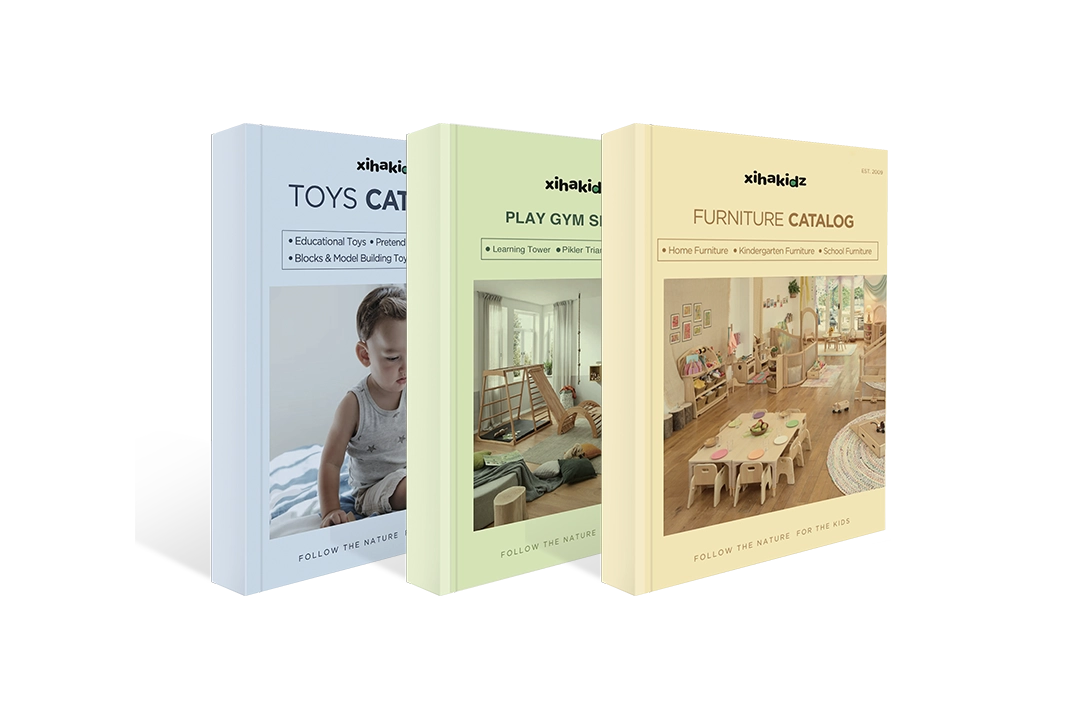Premium Dramatic Play Furniture for Preschool Classrooms
Our dramatic play furniture fosters imagination and creativity in young learners. Tailored for preschools, daycare centers, and early childhood classrooms, each piece encourages role-playing, social interaction, and cognitive development. Crafted from durable, child-safe materials, our dramatic play products offer functionality and fun. Whether you're setting up a pretend kitchen, doctor’s office, or home space, we provide custom solutions to create immersive environments that support learning through play. Enhance your classroom's engagement with our expertly designed dramatic play furniture.

Types of Preschool Dramatic Play Furniture
From pretend kitchens to role-playing stations, our carefully crafted products encourage children to immerse themselves in imaginative scenarios. Each piece is tailored to foster communication, social skills, and cognitive growth, providing endless opportunities for children to engage in enriching role-playing experiences. Please browse our diverse collection to find the perfect fit for your educational environment.

Children's Wooden Kitchen Set

Wooden Kitchen Set

Round Kitchen Island

Kids Little Chef

All in One Kitchen Set

Corner Wooden Play Kitchen

Toddler Dramatic Play Market

Freestanding Wooden Mart

Dress Up Units

Puppet Theater

Cleaning Cart Set

Dress Up Costumes Set
Premium Furniture Supplier for Preschool Classrooms
With over 20 years of expertise in creating and supplying preschool furniture, we’ve learned exactly what works best in the classroom. Our team combines practical experience with the latest educational trends to deliver the highest-quality dramatic play furniture that encourages imagination and creativity.
Our reputation as a reliable, expert supplier extends across the globe. Over the years, we’ve developed strong relationships with preschools, daycare centers, and educational institutions, earning their trust through our commitment to delivering functional, safe, and durable furniture that supports early childhood education.
Trust our experience and expertise to enhance your learning environment, inspire young minds, and create a space that teachers and children will love.
Optional Material for Your Dramatic Play Furniture

Strong, smooth, eco-friendly birch plywood is perfect for durable dramatic play furniture like kitchens and market stalls. It’s easy to clean and provides a natural, sensory-rich environment for children.

Durable and easy to clean, polyester fabrics are used for soft seating and cushions. These fabrics add comfort and vibrant colors, creating inviting spaces for imaginative role-play.


Stainless steel adds durability and realism to dramatic play items like kitchen sinks or restaurant equipment. It’s strong, easy to clean, and rust-resistant, perfect for high-use areas.

Durable, colorful, laminated MDF is used for kitchen counters and play surfaces. Its smooth finish resists wear and tear and is easy to clean, making it ideal for messy play areas.

Lightweight and colorful, plastic is ideal for small items like toy carts and pretend food. It’s durable, easy to handle, and simple to clean, making it perfect for constant use in play.
What Sets Us Apart
Competitive Prices
We offer high-quality dramatic play furniture and spaces at competitive prices, ensuring your daycare gets the best value for your investment while staying within budget.
Comprehensive Services
From concept design to production and installation, we provide an all-in-one solution to help you create a dynamic, inspiring, dramatic play environment tailored to your daycare’s needs.
Custom Designs
Our custom dramatic play furniture and layouts are designed to fit your space, reflect your educational philosophy, and support role-playing themes like kitchens, marketplaces, or doctor’s offices. =
Durability & Quality
Crafted from premium, non-toxic materials, our dramatic play furniture is safe, durable, and designed to withstand daily use, ensuring a reliable addition to your learning space.
Dedicated Support
Our dedicated team is here to assist you with issues, offering guaranteed support and resolutions within 8 hours to keep your dramatic play area running smoothly.
Fast & Reliable Delivery
We provide reliable and efficient logistics to ensure your dramatic play furniture arrives on time, allowing you to create a fully functional learning space with minimal disruption.
What is Dramatic Play?
Dramatic play, also known as pretend play or imaginative play, refers to a type of play in which children take on roles and act out scenarios, often imitating real-life activities and experiences. This form of play encourages creativity, social interaction, and problem-solving as children pretend to be doctors, teachers, parents, or any other character they can imagine.
In dramatic play, children use objects, costumes, and sometimes props to enhance their role-playing experience. It often involves peer collaboration, helping children develop communication skills and empathy as they explore different perspectives and situations.
Benefits of Dramatic Play
Enhances Social Skills
Dramatic play promotes interaction between children, helping them develop essential social skills like cooperation, turn-taking, and conflict resolution. They learn to communicate effectively and collaborate with peers as they negotiate roles and work together.
Stimulates Creativity and Imagination
Children engage in imaginative thinking through role-playing, creating stories and scenarios that reflect their thoughts and experiences. This fosters creativity and encourages them to think outside the box, strengthening their ability to innovate and solve problems.
Fosters Emotional Development
Dramatic play allows children to explore and express emotions by acting out different roles and situations. This helps them understand their feelings and develop empathy by considering how others might feel in similar situations.
Improves Language and Literacy Skills
As children play pretend play, they use new vocabulary, create dialogues, and tell stories. This enhances their language development, improves their storytelling abilities, and helps them learn sentence structures, contributing to better communication and literacy skills.
Develops Cognitive Skills
In dramatic play, children encounter challenges that require them to think critically and problem-solve. They also practice sequencing and memory, as they often revisit familiar scenarios, which helps strengthen their cognitive skills and understanding of cause and effect.
Encourages Independent Thinking
Pretend play allows children to decide about their roles, the scenarios they create, and how the play unfolds. This fosters independence, builds self-confidence, and encourages them to think on their feet as they take ownership of the play.
Dramatic Play Themes for Early Childhood

Doctor and Hospital
Children can pretend to be doctors, nurses, or patients, using doctor kits to administer check-ups and learning about health, wellness, care, and the roles of medical professionals.

Store or Market
Children can role-play as shopkeepers, cashiers, or customers, using play money and products to simulate shopping while learning basic math, commerce, and customer service.

Restaurant
Children in pretend restaurants can be chefs, waiters, or customers, taking orders, cooking food, serving meals, learning about teamwork, social etiquette, and communication.

Post Office
Children can play as mail carriers or clerks, sorting mail, sending packages, delivering letters, learning about community services, organization, and communication.

Fire Station
Children can pretend to be firefighters, rescue teams, or fire chiefs, putting out pretend fires and learning about safety, teamwork, and emergency procedures.

Construction Site
Children can role-play as builders, architects, or construction workers, using blocks and tools to build structures and problem-solve while learning teamwork and construction concepts.
Tips for Facilitating Dramatic Play
Provide Props
Give children access to costumes, toys, and materials that spark their imagination.
Social Interaction
Prompt children to interact with others by asking open-ended questions or suggesting roles.
Safe Space
Ensure enough space for children to move around freely and safely engage in role-playing.
Observe and Support
Watch children as they play, offering subtle guidance or asking questions to help expand their imagination and social interaction.
One-Stop Solution
Our One-Stop Solution is designed to provide a seamless, stress-free experience for preschool and wholesalers of children's furniture and toys. We manage the entire process from product design to delivery, so you can focus on growing your business while we handle the details. Here’s how our One-Stop Solution works:
Request Your Personalized Solution!
Different Types of Dramatic Play Activities
Role Play
Role play involves children taking on roles or occupations, such as doctor, teacher, firefighter, or parent, and acting out the behaviors, actions, and speech associated with these roles. This type of play helps children understand different social roles, develop empathy, and practice language and communication skills in real-life scenarios.
Fantasy Play
Fantasy play is a more complex form of pretend play, often involving magical, mythical, or supernatural elements. Children may pretend to be wizards, fairytale characters, or explorers in a fantasy world. This type of play encourages imagination, storytelling, and the ability to think abstractly, creating rich narratives.
Imitative Play
Imitative play involves children observing and mimicking actions they see in the real world. For example, a child might pretend to cook after watching someone prepare a meal or copy a parent’s work routine. Imitative play helps children develop motor skills, memory, and an understanding of everyday routines and social behaviors.
Socio-Dramatic Play
Socio-dramatic play occurs when children collaborate to create and act out elaborate scenarios involving multiple roles and characters. For example, they may play out a family setting, a store, or a community scene. This type of play enhances social interaction, cooperation, and communication skills as children negotiate roles and develop shared narratives.
Symbolic Play
Symbolic play involves children using objects to represent something else. For instance, a child might use a stick as a sword or a box as a car. This play helps children develop abstract thinking, cognitive flexibility, and understanding that one object can stand for another, enhancing their imagination and problem-solving abilities.
Design a Dramatic Play Environment
Theme Selection
Select flexible themes like a home, grocery store, doctor’s office, or construction zone to inspire imaginative role-play. Regularly updating these themes keeps the area fresh and sparks ongoing creativity.
Layout and Space Planning
Organize the space into distinct zones for each theme while maintaining flexibility for unrestricted movement. This allows children to transition easily between different areas and create new scenarios as they play.
Furniture and Structures
Use child-sized, accessible furniture and low storage for easy access to props. Include play essentials like miniature kitchens, cash registers, or a puppet theater to encourage realistic role-playing and engagement.
Materials and Props
Provide a variety of props, such as costumes, toy tools, and pretend food, to support diverse role-play scenarios. Rotating props regularly keeps the area exciting and inspires fresh, imaginative play.
Sensory and Interactive Elements
Enhance the play experience with sensory-rich elements like textured rugs, musical toys, and vibrant visuals. These features create an engaging environment that invites children to explore and interact.
Safety Considerations
Prioritize safety by ensuring furniture has rounded edges, using soft flooring, and securing storage. Regularly inspect the area to remove hazards, maintaining a safe and clean environment for children.
Maintaining the Dramatic Play Area
- Regular Inspection and Safety Checks
Regularly check props and furniture for hazards like sharp edges or loose parts. Ensure everything is safe and secure for the children to play with, preventing accidents. - Organizing and Rotating Props
Keep the dramatic play area organized by sorting props and rotating them regularly. This keeps the space fresh and engaging, offering the children new themes and play experiences. - Adapt to Children’s Developmental Needs
Update the materials and setup to match the children's age and development. As children grow, their play becomes more complex, so the space should offer new challenges and opportunities for learning.


- Thematic Updates
Refresh the play area with new themes like a hospital, restaurant, or farm. Changing themes regularly keeps children interested and encourages them to explore different roles and scenarios. - Create a Flexible Space
Ensure the space is adaptable, allowing children to move furniture and props to suit their play. A flexible space encourages creativity and lets children design their play environment. - Encourage Child Participation in Maintenance
Involve children in organizing and cleaning up the area. This helps maintain order and teaches them responsibility and respect for shared spaces.






